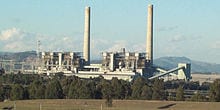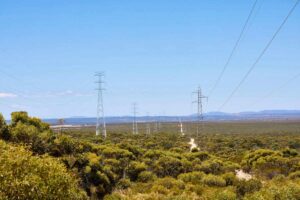AGL Energy, the country’s biggest generator of coal-fired electricity, says it is shutting down all four units of its 2,000MW Liddell power station in the NSW Hunter Valley over the next few months so it can conduct inspections and repairs to external boiler tubes.
 The decision to shut all four units of the ageing Liddell coal generator – built in 1971 – is not expected to affect supply because the Australia market has a vast surplus of coal-fired “base load” electricity, 7,000MW according to AGL’s own estimates.
The decision to shut all four units of the ageing Liddell coal generator – built in 1971 – is not expected to affect supply because the Australia market has a vast surplus of coal-fired “base load” electricity, 7,000MW according to AGL’s own estimates.
Liddell operates at less than half of its capacity, in any case, as it has one of the highest running costs of any coal-fired generator, and is expected to close if and when the Tomago aluminium smelter shuts down.
AGL said in a statement that it was conducting inspections on all four Liddell units following a recent external boiler tube leak on unit 1. The inspections, and possible repairs, will result in outages over the next two months.
Units 1 and 4 are currently out of service and are undergoing repairs. Units 2 and 3 are able to operate, and are operating at reduced capability. Unit 3 will be shut down for repairs around March 28 and unit 2 will be shut down when work has been completed on units 1 and 4.
AGL says the financial impact of the outages is estimated at $15 million to $20 million net profit. The estimate reflects both the direct loss of generation revenue and “estimated broader impacts on the electricity trading portfolio”, which may mean that some revenue is recovered because the price of electricity may rise as less power is available.
AGL has thrown its support behind plans for payments to be made to encourage coal-fired power stations to exit the market to make more room for renewables, address over-supply, and help wholesale prices to recover.
However, analysts at Morgan Stanley say this is unlikely to occur.
“We don’t think governments will support explicit schemes to reduce the wholesale supply of electricity,” the analysts write in a report.
“We see little policy benefit and no political benefit for government in approving an otherwise anti-competitive process to produce an uncertain level of emissions reduction, which would, at least in the short term, add to cost pressures for consumers and industry (i.e. higher electricity prices), while risking the security and reliability of supply, for the direct benefit of a small group of large corporations.”
It said the former Labor federal government attempted a closure payment scheme in 2012 but could not reach agreement, and most Australian coal-fired plants received compensation for the carbon price under the 2012 Clean Energy Future Program.
“We think Australian governments are more likely to support incentive-based schemes, e.g. renewables feed-in-tariffs, and targets, e.g. the RET and the Emissions Reductions Fund (ERF). These ‘green schemes’ are popular, and are effectively coal plant closure schemes anyway.”






